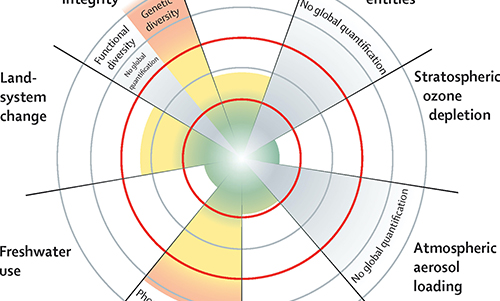The Rockefeller Foundation-Lancet Commission on Planetary Health concluded in 2015 that the world has been mortgaging the health of future generations to realize the economic and development gains that we have been achieving in the present. But we now risk substantial health effects from the degradation of nature’s life support systems.
Coining the term planetary health to capture the issue underscores the complex interrelationship among the biosphere, the environment, and human well being. Most notable elements of changes in the environment that are impacting human health include climate change, ocean acidification, land degradation, water scarcity, depletion of fisheries and loss of pollinators. These factors are impacting food and water security, sanitation, increases in the occurrence and spread of water-related, zoonotic and vector-borne diseases, growing air-pollution related illness, health risks from toxic chemical exposure, and mental health impacts, to name just a few.
Nonetheless, unparalleled opportunities now exist to harness new knowledge, improve governance, and exploit a range of technologies that can improve health and reduce environmental damage. Increasing demands from investors, shareholders, and civil society can also be capitalized on to develop sustainable business models that fulfill both commercial and social/environmental goals. The U.N. Sustainable Development Goals (SDG’s) are providing on opportunity for all global actors to address these harmful trends and tackle health, social and environmental challenges in new, and more integrated ways. Actions include new incentives for behavior change, movement toward a more circular economy, new ways of determining human progress that go beyond GDP, new policies for taxes and subsidies that support planetary health, tackling health inequities, and increasing the resilience of health systems and human populations to environmental change.

